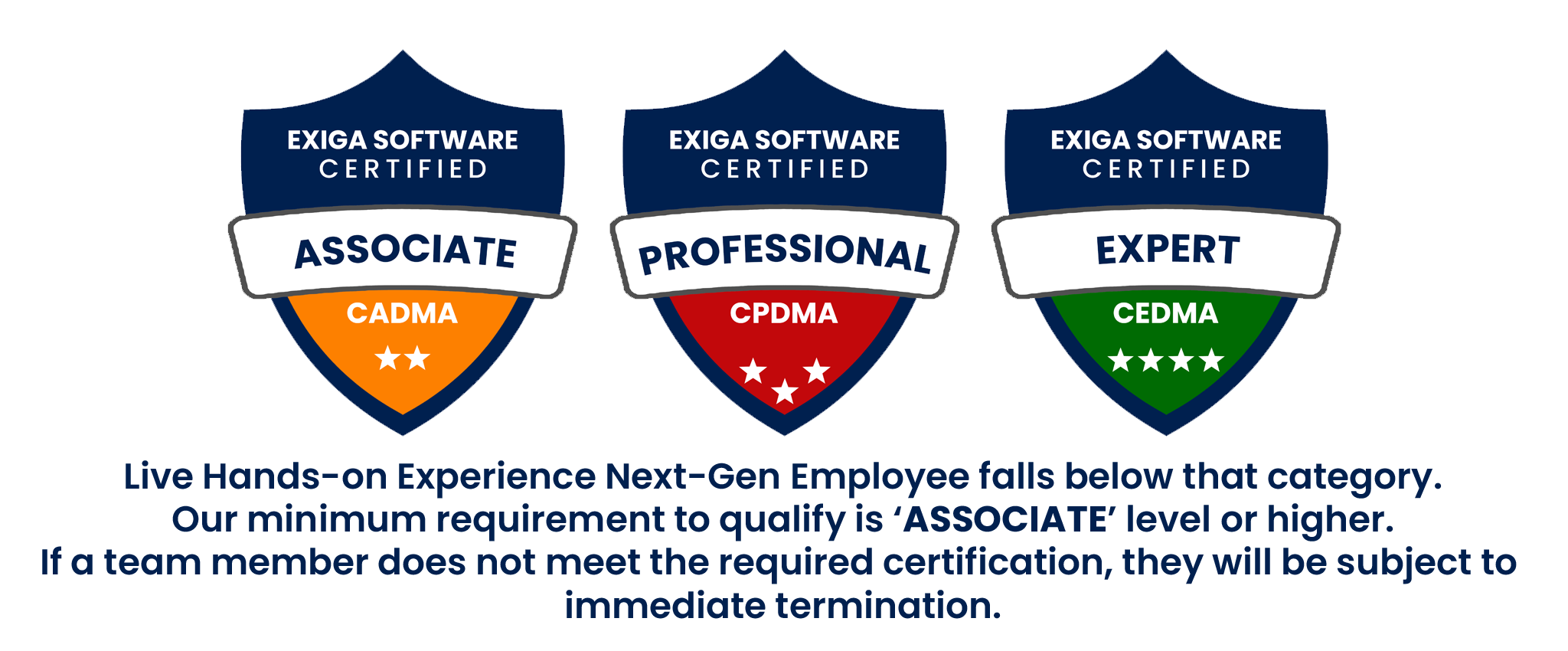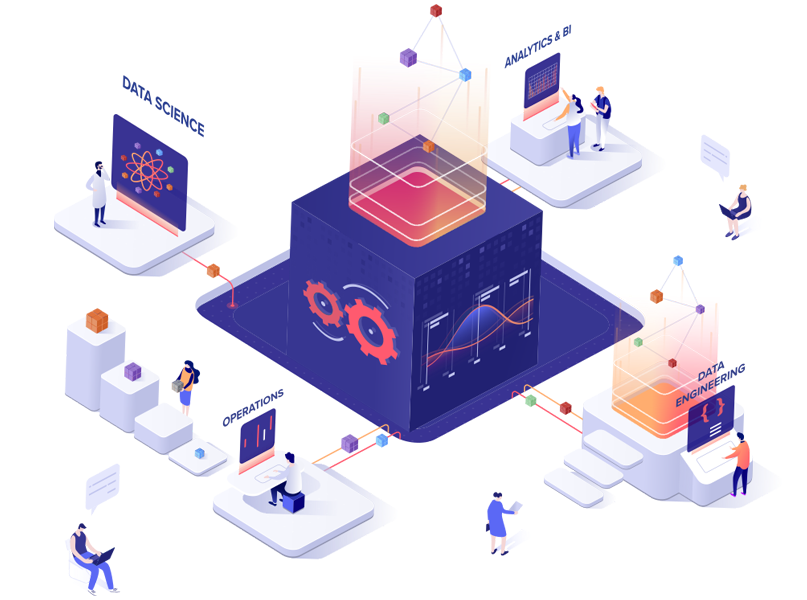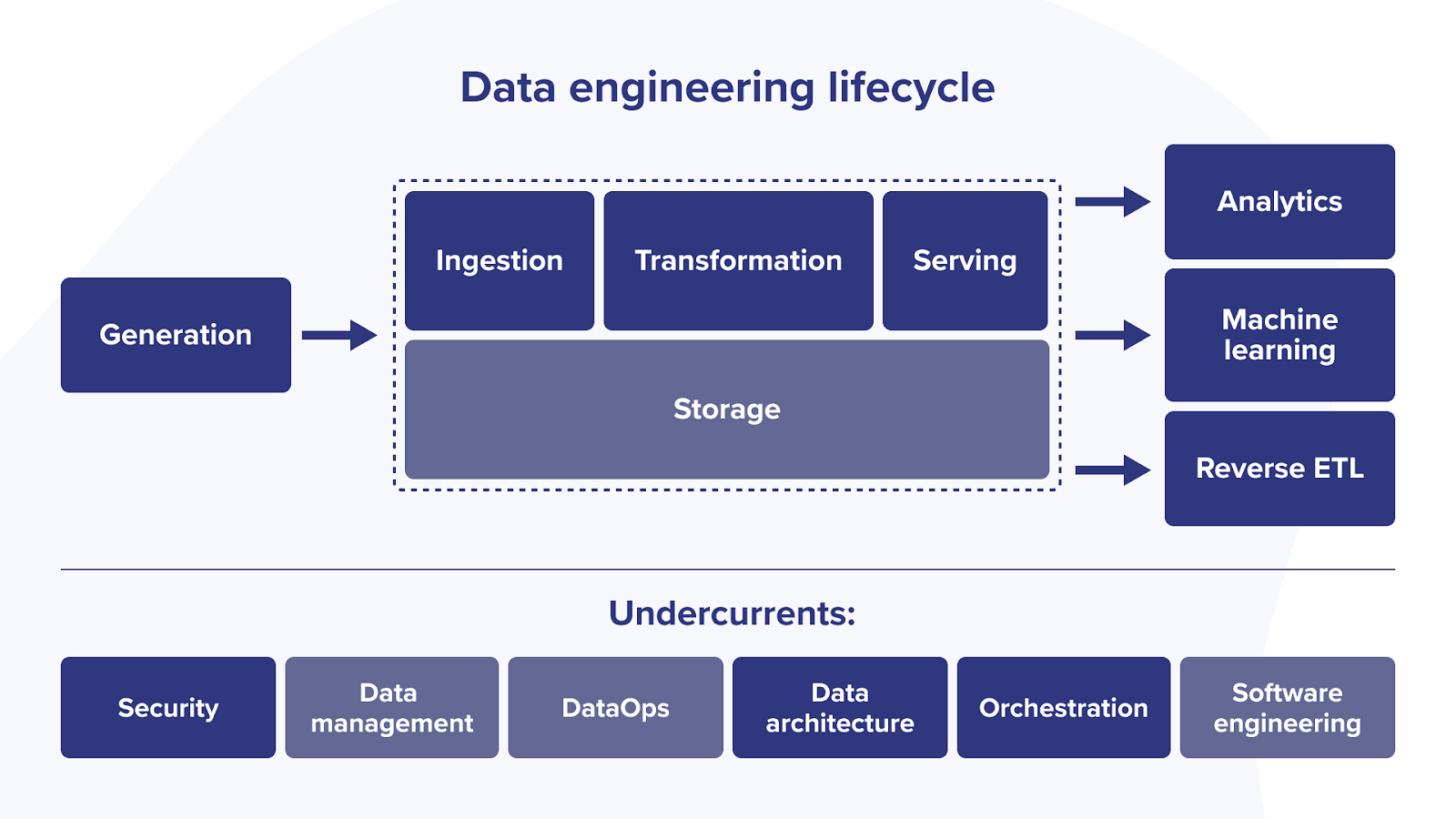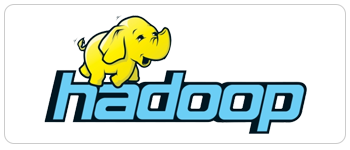Certified Professional in Data Engineering & Data Analytics with AI
Arrange the following work environment for work-from-home training.

Learning
Why Learn Data Engineering & Data Analytics?
Foundations of Data Engineering Ecosystem and Lifecycle
Essential Python Skills for Data Engineering
Advanced Structures Query Language(SQL)
Data Management & Collaboration

+
0
$
Student
+
0
$
professional
75%

Who is a Data Engineer?
A data engineer is responsible for building, designing, and maintaining data infrastructure. The process of designing and building systems lets you collect and analyze data from multiple sources in different formats. This optimizes decision-making for organizations. Usually, data engineers are responsible for moving data from different sources into a centralized storage system like data warehouses and data lakes. This often includes implementing ETL and ELT processes for streamlining the data movement.
Data Analyst Vs Data Engineer: Key Differences
| Attributes | Data Analysts | Data Engineers |
|---|---|---|
| Role | Derive insights from data to optimize business operations. | Design, build, and maintain data infrastructure. |
| Tools | Excel, business intelligence tools like Power BI, SQL. | Programming languages and Big data tools like Apache Spark or Hadoop. |
| Output | Dashboards, reports, documentation. | Data pipelines, data infrastructure, ETL workflows. |
| Education Background | Degrees in statistics, economics, or mathematics. | Degrees in computer science or engineering. |
| Tasks | Querying databases and CRMs, transforming data, and cleaning. | Creating data pipelines, and optimizing database performance. |
Data Analyst Vs Data Engineer: In-depth Comparison
Here’s How Exiga Software ServicesBenefits Data Analysts:
- User-Friendly Interface: Unlike some tools that require extensive coding knowledge, Exiga Software Services offers a user-friendly interface that allows analysts to set up and manage data integrations with ease.
- Comprehensive Data Integration: While some platforms might only support specific data sources, Exiga Software Services boasts a vast array of pre-built connectors, enabling analysts to pull data seamlessly from various platforms, be it CRMs, databases, or cloud services.
- Near real-time Data Processing: Some tools might have latency in data processing, but Exiga Software Services ensures near-real-time data processing, which is crucial for time-sensitive analytical projects.
- Visual Data Flow: Instead of relying solely on code or scripts, analysts can visually map out their data integration and transformation processes, making it easier to understand and optimize workflows.
- Collaboration Features: Exiga Software Services promotes teamwork, allowing analysts to share integration flows, ensuring consistent data handling across teams, something not all platforms emphasize.
Data Engineers, tasked with constructing and maintaining data infrastructure, will find Exiga Software invaluable. The platform streamlines the ETL processes, ensuring data is not only accessible but also optimized for near real-time analysis. Whether you’re working with big data technologies, machine learning models, or predictive algorithms, Exiga Software ensures that your data pipelines are efficient and reliable.
Here’s How Exiga Software Services Benefits Data Engineers:
- Streamlined ETL Processes: Exiga Software Services simplifies the Extract, Transform, Load (ETL) processes, making it easier for engineers to manage and optimize data pipelines.
- Streamlined ETL Processes: Exiga Software Services simplifies the Extract, Transform, Load (ETL) processes, making it easier for engineers to manage and optimize data pipelines.
- Scalability: As organizations grow and data volumes increase, Exiga Software scales effortlessly, ensuring that data infrastructure remains robust and efficient.
- Enhanced Data Security: Data Engineers are often concerned about data integrity and security. Exiga Software offers features like encryption and ensures compliance with industry standards, giving engineers peace of mind.
- Support for Big Data Technologies: While some tools might be limited in their support for big data technologies, Exiga Software is compatible with popular platforms like Salesforce, Heroku, and Snowflake.
- Deep Integration Capabilities: Exiga Software allows for deep integrations, ensuring that data from various sources is harmonized and ready for analysis or further processing. This depth is not always available in other tools.
- Support & Documentation: A comprehensive library of resources and a dedicated support team ensure that engineers can swiftly overcome challenges and implement best practices.
In comparison to other tools, Exiga Software offers a blend of simplicity and depth, ensuring that both Data Analysts and Data Engineers can efficiently manage their data workflows. Its focus on collaboration, security, and support further sets it apart, making it a preferred choice for professionals aiming for excellence in their data-driven endeavors.






